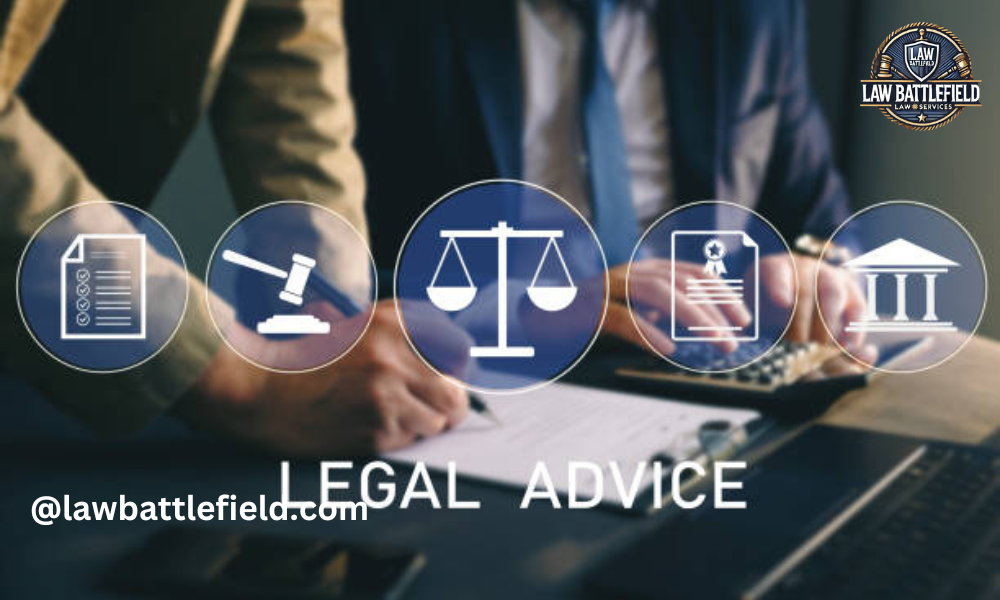Introduction To Unbundled Legal Services
Definition Of Unbundled Legal Services
Unbundled legal services, also known as limited scope representation, is a model where a lawyer helps with specific parts of a legal case rather than managing the entire process. For example, a client may hire a lawyer to draft legal documents, but handle court appearances on their own. This service allows clients to choose exactly which tasks they need help with, making it more flexible and affordable than traditional full-service representation.
Importance In Modern Legal Practices
Unbundled legal services are becoming more popular because of the rising costs associated with hiring a lawyer. Many individuals cannot afford full legal representation for the entire duration of a case. By offering unbundled services, lawyers make legal help more accessible to people who need it. Clients can pick and choose the legal support they require, which helps reduce expenses. This option is particularly valuable in family law cases, small civil disputes, and even estate planning. More law firms are adapting to this model to meet the growing demand for affordable legal solutions.
Unbundling legal services allows lawyers to expand their reach to clients who would otherwise represent themselves, and clients benefit from professional help without the high costs typically associated with legal services.
How Unbundled Legal Services Work
Types Of Unbundled Services Offered
Unbundled legal services provide clients with the flexibility to only hire a lawyer for specific tasks in their legal case, instead of full representation. This can help clients control costs while still getting professional legal assistance where they need it most. Here are some common types of unbundled services:
- Document Drafting: Lawyers can help with preparing important legal documents such as contracts, pleadings, and court motions. The client is then responsible for filing these documents or using them as needed.
- Legal Advice for Specific Tasks: Instead of full case management, lawyers can offer advice on particular legal issues or stages of a case. This could include explaining laws, discussing strategies, or reviewing a settlement offer.
- Pro Se Coaching: This service helps clients who choose to represent themselves in court. Lawyers provide coaching on how to navigate the legal system, what to expect in court, and how to present their case effectively.
- Limited Court Appearances: In some cases, a client may hire a lawyer to appear in court for specific hearings or motions, while handling other parts of the case on their own.
- Online Legal Consultations and Dispute Resolution: Many lawyers offer virtual consultations or help with online dispute resolution processes, providing convenience and accessibility for clients.
Common Areas Where Unbundling Is Used
Unbundled legal services are especially common in areas where legal cases can be expensive or lengthy. Some of the most frequent areas of use include:
- Family Law: Divorce, child custody, and support cases often involve complex legal processes that clients may want help with. By using unbundled services, they can get assistance with specific issues like drafting a custody agreement or handling part of the divorce paperwork.
- Small Claims and Civil Disputes: Many people represent themselves in small claims court, but they might still need a lawyer’s help with document preparation or strategy.
- Estate Planning and Business Transactions: Clients may only need a lawyer to draft or review specific documents such as wills, trusts, or business contracts without needing full legal representation.
Unbundled legal services provide both affordability and accessibility, allowing clients to get professional help for specific aspects of their legal needs. This tailored approach gives people more control over their legal expenses while ensuring they get the support they require.
Benefits Of Unbundled Legal Services
For Clients: Cost-Effective And More Control Over Their Legal Matters
Unbundled legal services are highly beneficial for clients as they offer a cost-effective solution. Clients only pay for the specific legal tasks they need help with, which can make legal representation much more affordable compared to full-service options.
Additionally, clients retain more control over their cases, deciding which parts they want to handle themselves and which they want a lawyer’s assistance with. This allows them to manage their legal matters at a pace and budget that suits them.
For Lawyers: Expands Client Base By Offering More Affordable Services
For lawyers, unbundled services provide an opportunity to serve a broader range of clients. Many individuals avoid hiring lawyers due to the high costs of full representation. By offering affordable, limited-scope services, lawyers can tap into a market of clients who may not have otherwise sought legal help. This approach allows lawyers to build relationships with clients who may later need more comprehensive services.
For Courts: Reduces The Strain On Courts By Helping Self-Represented Litigants
Unbundled legal services help reduce the burden on courts, particularly by assisting self-represented litigants. Courts often experience delays and inefficiencies when individuals attempt to navigate the legal process without proper guidance. With unbundled services, litigants can receive legal advice or document preparation help, which can streamline court proceedings and reduce errors. This benefits not only the court system but also other parties involved in legal disputes.
Examples Of Successful Unbundling Models
Various models of unbundled legal services have proven successful, adapting to different client needs and law practice setups:
- Virtual Law Offices: Lawyers who operate virtual law offices can offer unbundled services completely online. This setup is especially convenient for clients who prefer remote consultations and digital communication. Lawyers can draft documents, provide legal advice, or coach clients online without the need for physical meetings.
- Hybrid Models: These combine both physical and virtual services. Lawyers might work from a traditional office but still offer certain services online. Clients can choose whether to visit the lawyer in person or receive legal help through a virtual platform, allowing for more flexibility.
- Specialized Legal Clinics: Some legal clinics specialize in offering unbundled services, focusing on specific legal areas such as family law or estate planning. These clinics provide clients with targeted help for their legal needs while allowing them to handle other parts of their case independently.
These models show how unbundled legal services can be customized to fit both client and lawyer preferences, making legal help more accessible and affordable for everyone involved.
Challenges And Risks Of Unbundled Legal Services
Potential Risks For Lawyers
While unbundled legal services offer many benefits, they also present some risks for lawyers. One of the primary risks is the potential for malpractice claims. When offering limited scope representation, there’s a possibility that important aspects of the case may be overlooked. Lawyers must be careful to ensure that their services are well-defined and that clients understand the boundaries of the representation. Incomplete or unclear communication can lead to misunderstandings about what tasks the lawyer will handle, increasing the risk of client dissatisfaction or legal issues.
Another concern is the limited amount of interaction between the lawyer and client. With unbundled services, lawyers may not be involved in the entire case, which can limit their ability to foresee potential issues. This could result in advice or services that fail to account for all aspects of a client’s legal needs, potentially harming the client’s case and the lawyer’s reputation.
Informed Consent
To mitigate these risks, informed consent is essential. Lawyers must ensure that clients fully understand the scope and limitations of the unbundled services being offered. This means clearly outlining in writing what the lawyer will and will not do.
It’s important to explain to the client that while the lawyer is handling specific tasks, the overall responsibility for the case remains with the client unless otherwise agreed. Informed consent ensures that both the lawyer and the client are on the same page, reducing the likelihood of confusion or unmet expectations.
Court And Client Misunderstandings
When representing a client under limited scope, misunderstandings can arise during court proceedings. For example, if a lawyer appears in court for only a portion of the case, the client or judge may expect the lawyer to assist with other parts as well. To avoid this, lawyers should inform the court and the client, in advance, about the specific limits of their representation.
Clear communication with both the court and the client can help prevent uncomfortable situations where a lawyer is asked to participate in areas they were not retained to handle. Attorneys should consider having a formal agreement in place and notifying the court of their limited role before hearings or trials to ensure there are no assumptions about their involvement beyond the agreed scope.
Best Practices For Offering Unbundled Legal Services
Clear Client Agreements
One of the most important practices in offering unbundled legal services is ensuring that there is a clear, written agreement between the lawyer and client. This agreement should clearly specify the exact services that the lawyer will provide and the limits of those services.
The client should understand which tasks they will handle on their own and what to expect from the lawyer. This avoids confusion and protects both parties from misunderstandings. The written agreement should also outline fees for each service provided, giving the client a transparent view of the costs involved.
Legal Tech Integration
In today’s digital age, technology plays a key role in making unbundled services more efficient and accessible. Lawyers can use various tools to streamline their services, such as client portals where clients can upload documents, view case updates, and communicate with the lawyer.
Document automation tools help lawyers quickly draft legal documents, reducing the time and cost for both parties. Additionally, online dispute resolution platforms allow lawyers to assist clients in resolving legal issues remotely, providing a convenient option for those who prefer to handle legal matters from home.
Ethical Considerations
Offering unbundled legal services requires lawyers to be mindful of ethical standards, particularly in limited scope representation. Lawyers must ensure that they do not create conflicts of interest, and they need to evaluate whether limited representation can be provided without negatively impacting the client.
It’s also crucial to keep the client informed throughout the process, ensuring that they fully understand their responsibilities and the lawyer’s role in the case. Transparency and professionalism are key to maintaining trust and avoiding ethical pitfalls.
The Role Of Technology In Unbundled Legal Services
Virtual Law Offices And Automation
Technology has transformed how legal services are delivered, making it easier for lawyers to offer unbundled services. Virtual law offices are becoming increasingly common, allowing lawyers to interact with clients entirely online.
These offices use digital tools such as secure portals, video conferencing, and document automation to offer efficient, streamlined legal services. This reduces overhead costs for lawyers, who may not need a physical office, and improves access for clients who can handle their legal matters from anywhere.
The Future Of Legal Services
The demand for unbundled legal services is expected to grow, driven by the increasing need for affordable, flexible legal help. As technology continues to evolve, more clients will likely seek out lawyers who can offer limited scope services online.
Innovations such as artificial intelligence and automated legal advice systems could further enhance the efficiency of these services, allowing lawyers to serve more clients while reducing the costs of legal representation. The future of the legal industry will likely see more firms incorporating unbundled services into their practices, making legal help accessible to a broader range of people.
Legal And Ethical Guidelines For Unbundled Legal Services
State Bar Rules And Guidelines
Lawyers offering unbundled legal services must adhere to their state bar’s specific rules and guidelines. Each state has its own rules on limited scope representation, often requiring clear communication and agreements between the lawyer and the client.
These rules ensure that clients are aware of exactly what legal services they are receiving, and they protect both the client and the lawyer from misunderstandings. It’s essential that lawyers remain up to date on their state’s requirements regarding unbundled services, including any rules about filing limited appearances in court, documentation, and fee agreements. Compliance with state-specific rules helps maintain professionalism and reduces the risk of ethical violations.
Legal Responsibility And Liability
When offering unbundled services, lawyers must ensure that there is no overlap between the limited services they provide and full representation unless a new agreement is created. Without clear boundaries, lawyers may inadvertently take on more responsibility than originally agreed upon, which can lead to potential liability issues.
It’s crucial to have a written agreement in place that clearly defines the scope of the lawyer’s role. This helps protect the lawyer from legal malpractice claims and ensures that the client understands what aspects of their case they must handle on their own. Proper documentation and communication can prevent many of the common pitfalls associated with unbundled services.
Conclusion
Bridging The Access To Justice Gap
Unbundled legal services play a vital role in addressing the access to justice gap. Many individuals who need legal assistance cannot afford full representation, leaving them to navigate the legal system alone. Unbundling allows lawyers to offer affordable help on specific parts of a case, making legal services more accessible to a wider audience.
This service model is essential for those who need legal guidance but cannot commit to the high costs of traditional legal representation. By providing flexible, task-specific legal support, unbundled services help ensure that more people can receive the legal assistance they need.
Call To Action For Lawyers
As the demand for affordable legal services grows, it is important for lawyers to embrace unbundled services. Offering these services allows attorneys to reach a broader client base while providing meaningful support to those who need it.
Lawyers should explore the use of technology and adopt clear ethical standards to ensure that unbundled services are delivered effectively. By integrating unbundled legal services into their practice, attorneys can help bridge the justice gap and serve a wider range of clients while maintaining professional and ethical standards.
FAQs
What Are Unbundled Legal Services?
Unbundled legal services refer to a model where a lawyer provides assistance with specific tasks rather than full representation. Clients can hire a lawyer for particular aspects of their case, such as drafting documents or appearing in court, while handling other parts on their own.
How Do Unbundled Legal Services Save Money?
With unbundled services, clients only pay for the specific legal tasks they need help with. This flexibility allows clients to manage their own legal matters while still receiving professional guidance, often at a lower cost than traditional full-service representation.
In Which Areas Of Law Are Unbundled Services Commonly Offered?
Unbundled legal services are frequently offered in family law (such as divorce and custody cases), small claims, civil disputes, estate planning, and business transactions.
Are Unbundled Legal Services Safe For Clients?
Yes, as long as there is a clear agreement defining the lawyer’s role and limitations. Both the client and the lawyer must understand the scope of the representation to ensure that no part of the case is left uncovered.
Can A Lawyer Switch From Unbundled To Full Representation?
Yes, but this requires a new agreement. If a case becomes more complex or if the client decides they need more comprehensive legal help, the lawyer and client can agree to switch to full representation, with updated terms and fees.
Was this article helpful? Check out more on Lawbattlefield.com
Experienced Roseville Personal Injury Lawyer – Get The Compensation You Deserve





